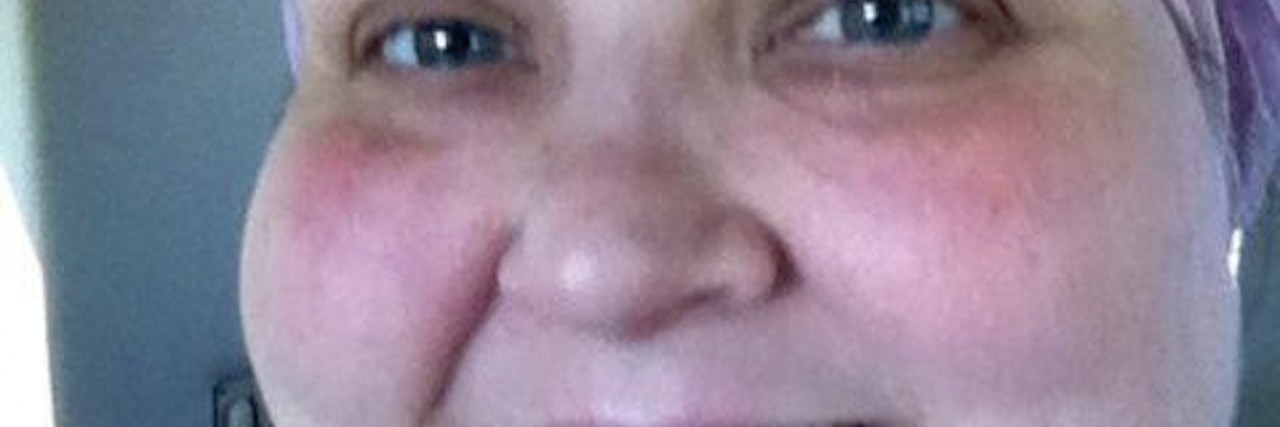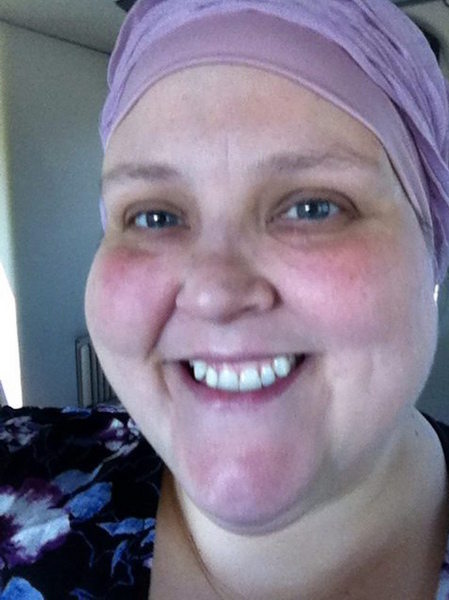I have a disease. Though its scientific name is lipedema, more specifically stage four lipo-lymphedema, most people interpret my medical affliction as simply being fat. The rolls of diseased tissue constantly swelling and cutting off proper lymph and blood flow to the rest of my body is interpreted as countless hours of shoving donuts into my face. Each time I venture into public I can see it in people’s eyes: pity at the poor fat girl in the wheelchair, disgust that I have done this to myself and gratefulness that they are not “pathetic” like me.
They don’t see the disease, they don’t see I’m so much more than the condition that is slowly killing me and they don’t understand their reactions simply make me wish I was dead all the sooner. Somewhere along this journey I simply ceased to be a person.
My husband and I underwent an incredible journey this winter. We traveled more than 3,000 miles by car from New York to Arizona to see a lipedema specialist. In many ways, the trip was a pilgrimage to my medical mecca. This physician would lay her hands on me and I would finally have the vindication from at least one white coat that I was simply a person with a problem.
Finally, I didn’t have to fear being poked like some sort of circus specimen and be treated like some rampaging glutton who simply could not follow a medically prescribed diet. She would be able to transform me into a courageous survivor or some other brave moniker.
I was sitting in the middle of the waiting room, exhausted and swollen from seven days in the car. It was a crowded room with seats close together, and I was obviously in the way in my bariatric chair. Michael tried to slide me out of the way as much as possible, but I could tell by the sideways glances and stifled snuffs as people slithered past me that I remained an abomination in their physical space. I sat there for what felt like forever, watching tall people, short people, old and young, light and dark, happy and sad, the very ill and all kinds of people walk in and sit down. I kept rubbing the soft afghan protecting my legs from prying eyes and quietly cried.
The double hospital doors swung open to expose the rooms where all the miracles happen. I strained to look, hoping it was my doctor coming to save me from the embarrassment of sitting here in this sea of judging eyes. I needed her to save me from this disease. But out came a middle-aged woman, a young girl and a boy. I’ve learned to avert my gaze from children as they rarely have what little semblance of appropriate behavior that adults possess when confronted with someone different. But this boy was different.
He was maybe 10 and tall and thin like a bean. His skin was dark, which only made his small smile look brighter. I could feel his eyes focused in my direction. I didn’t want to look, but he met my eyes and said, “Hi, ma’am.” There was no judgment and no ridicule. It was just one human being acknowledging the humanity of another. We never know where our best teachers will come from, and that young boy will never know the impact he made on my life. He didn’t see the lipedema or even a woman in a wheelchair with big legs; he saw me. I wasn’t even sure I was still in there anymore.
The trip home was very different. I still struggled physically, but I was present. I touched, I saw, I spoke and I was. I’m sure the stares were pervasive, but all I remember from the trip home is that I tasted slimy cactus in Oklahoma, we saw the massive Grand Ole Opry in Tennessee, I devoured spicy jambalaya with some wonderful new friends in Alabama, we smelled the salty ocean breeze in Maryland and I came home a person and not just a disease. And for the first time in a long time, I felt like I mattered.
People should be much more considerate and less disparaging when gazing upon someone different, but I also have the responsibility to know I am worthy and not to expect validation from strangers. I also have to be brave and be in the world to meet those unpleasant gazes with my humanity and teach others the example of the world I want to see. Under all the clothing, the skin, the flesh and the other elements that fall away when we finally expire is our humanity.
Though I still have this disease, it did lead me to that medical clinic in Arizona and the young child who showed me a different world in one brief encounter. I also have an awareness and an expanded consciousness because of it. I have hope for a healthier future as well as the strength to come out of the shadows to talk about this debilitating disease. I also have me, and it’s been a long time since she’s been around.
The Mighty is asking the following: What’s the hardest thing you deal with as someone with a chronic illness, and how do you face this? What advice and words of support would you offer someone facing the same thing? If you’d like to participate, please send a blog post to community@themighty.com. Please include a photo for the piece, a photo of yourself and 1-2 sentence bio. Check out our “Share Your Story” page for more about our submission guidelines.


